City of Halle
Location and surroundings
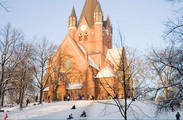
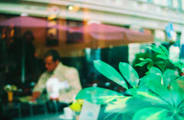
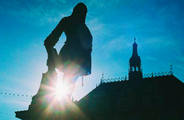
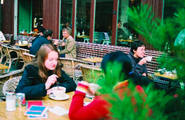
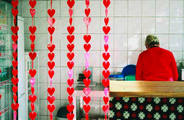
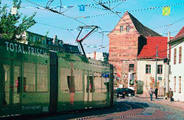
Halle: city of art and culture
The inhabitants of Halle (270 000) are proud of their city’s thousand-year-old history. Halle is known as the city of salt, since it was the production of salt that contributed to the city’s wealth over the centuries. A salt crystal is thus shown to this day on Halle’s coat of arms. Today, Halle proudly considers itself to be the cultural capital of the Land Sachsen-Anhalt. Due to Lyonel Feininger’s famous paintings Halle is called the "five-towers-city", although one can see more then just five towers.
Halle: university and college town
Home of the University of Art and Design Burg Giebichenstein, the Martin-Luther-University of Halle-Wittenberg and the Protestant College of Church Music. During the day students dedicate themselves to their studies, at night they meet in one of the numerous cafés, bars and student hang-outs for.
Halle: city of libraries
the university library and the other college libraries , among them the Art College’s own remarkables holdings of old and new literature from all fields of art, architecture and design. Not to forget the baroque library of the Franckeschen Stiftungen and the Marienbibliothek of the church St. Marien.
Halle: city of music and theatre
cultural life in Halle is rich and on a high standard. An impressive variety in musical styles can be heard at the renowned Municipal Opera House, at the annual international Händel-Festival with its own orchestra and guests from all over the world, at the concert hall Ullrichskirche and at concerts in various churches. The new generation of musicians is receiving its formation at the "G.F. Händel" conservatory. And of course, young and old should not miss the opportunity to attend performances of high standard at the city’s numerous theatres and cabarets. The contemporary music scene is thriving as well and a local newspaper has - a bit overenthusiastically maybe - named Halle the "German Seattle" with regard to its music scene.
Halle: city of museums, galeries and art associations
the National Gallery Moritzburg Halle presents an important permanent collection and a permanent exhibition on the history of the University of Art and Design Burg Giebichenstein. Birthplaces of the philosopher Christian Wolff and the famous composer Georg Friedrich Händel have been turned into interesting museums among numerous others. And there are many more places to see and experience. Art galeries in Halle are numerous. Most of them present exhibitions with an emphasis on contemporary artists.
Halle: city of movie theatres
There are some independent movie theatres presenting "highbrow", non-commercial programs like the Künstlerkino188 or the Cinema Club of the University of Art and Design "Strapaze". Also, a visit to the cinema "Capitol" is recommended. A modern multi- screen complexe "Cinemaxx" has recently opened ist doors in the middle of town, showing the latest commercial Hollywood productions.
The Franckeschen Stiftungen
are of special importance for the city of Halle. The entire building complexe has been included in the UNESCO list of protected cultural monuments and is in reconstruction since 1990. This complexe contains 50 baroque-style buildings which were constructed from 1698 onwards and were to become a place of instruction for orphaned children as well as for children of the nobility. August Hermann Francke, father of the Halle pietism movement, was founder of this "school - city".
Looking beyond the city limits
there are interesting outings: to the historical health resort Bad Lauchstädt with the Goethetheater, founded by the master himself in 1802, or to the monastery church at the Petersberg or to the Bauhaus Dessau.
Studying in Halle
Halle is not the Garden of Eden, but unlike in the Garden of Eden one can observe history in the making which might be a unique and unforgettable experience for anybody willing to take up the challenge and to leave the safe haven of home for a few months or years. Chances are you might even fall in love with Halle!
